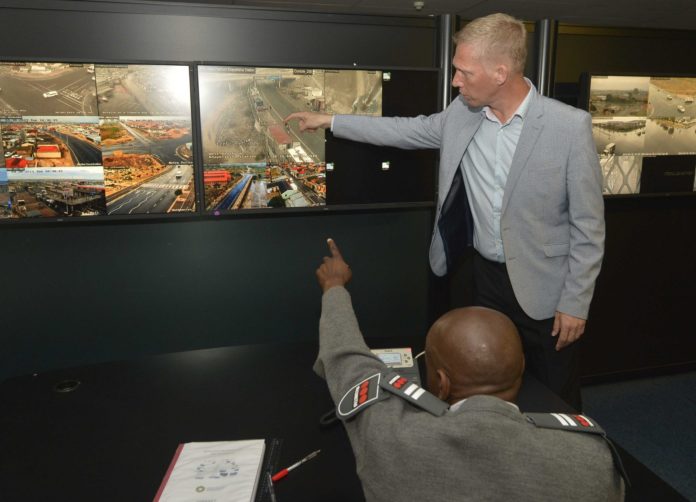
The City of Cape Town’s network of 1 600 closed circuit television (CCTV) cameras makes it one of the largest on the continent. Between December 2018 and February 2019 CCTV cameras detected 4 211 incidents, of which 1 512 (36%) were of a criminal nature. On 30 April 2019, members of the media got a rare glimpse into the camera control room in Goodwood which is vital to the City’s efforts to make Cape Town safer.
‘Our CCTV system has become an important resource in crime prevention, crime detection and traffic management. The City’s Strategic Surveillance Unit (SSU) forms part of the Metro Police Department which oversees the procurement and installation of the technology. The SSU network is on average 85% to 90% operational which is the international benchmark for camera functionality,’ said the City’s Mayoral Committee Member for Safety and Security, Alderman JP Smith.
Between December 2018 and February 2019 CCTV cameras detected 4 211 incidents, of which 1 512 (36%) were of a criminal nature.
During this period, 64 arrests were made on a range of charges, including breaking and entering, possession of drugs, driving under the influence and cable theft.
In the latest cable theft arrests, four suspects with over 400 metres of stolen cable were apprehended in two different incidents all because of the performance of the City’s vigilant camera operators.
‘The CCTV system also provides valuable intelligence and data for investigations that are carried out by law enforcement agencies. It’s not just an efficient means of surveillance but also, if the need arises, a good source of forensic data,’ said Alderman Smith.
The number of cameras currently in the Cape Town CCTV network is as follows:
- Freeway Management System: 239
- Integrated Rapid Transit System: 713
- Metro Police Strategic Surveillance Unit: 648
A pool of 120 CCTV operators have several responsibilities, ranging from operating and monitoring the surveillance screens, reporting incidents as evidence and of potentially contacting the police and emergency services as required.
The operators are trained in the use of the cameras for crime prevention and detection, traffic management, by-law infringements, fire detection and prevention and general area management.
‘Most areas where there is a camera footprint have generally shown a lower level of crime although the City is the first to admit that more can and should be done. However, I should also point out that in the case of crime prevention, the City is the junior partner and that the South African Police Service (SAPS) is the lead agency. We can support the SAPS and communities with enforcement operations, but we cannot replace the job that the SAPS is meant to do,’ said Alderman Smith.

